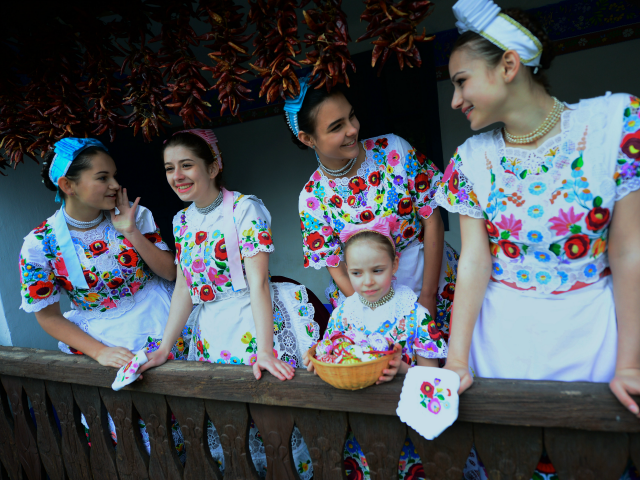Hungary’s conservative prime minister Viktor Orbán has announced seven family-friendly government programmes that will encourage Hungarians to have children as the country rejects the European Union’s progressive mass migration agenda.
“We are living in times when fewer and fewer children are being born throughout Europe. People in the West are responding to this with immigration,” Prime Minister Orbán said at the State of the Nation address in Budapest on Sunday.
“Hungarians see this in a different light. We do not need numbers, but Hungarian children,” the Fidesz party leader added.
Mr Orbán was returned to the role of premier in the April 2018 elections, winning a parliamentary supermajority and his third consecutive term in office after running on a manifesto of protecting the country’s border, defending Hungarian culture, and supporting families.
Remarking that 80 per cent of Hungarians supported the government in its family policy, the prime minister announced a series of programmes to reward and support mothers, fathers, and grandparents for their contribution to the country, including: extending family housing benefits; extending child benefits for the third and subsequent child born to a family; introducing a car purchasing programme for large families; providing comprehensive daycare; and introducing child care allowance for grandparents who look after their grandchildren.
Two of the most ambitious of the seven programmes, however, are directed at women. In one scheme, the government will give a loan of ten million Forints (£27,385/$35,230) to every woman under 40 who marries for the first time. One third of the loan’s repayment would be waived upon the birth of the first child, further concessions for the second, with the entire loan being written off after the birth of a third child.
The other programme would see women who have raised four or more children being exempt from paying income tax for life.
Both of these women-focused policies were revealed the day before the progressive Council of Europe human rights commissioner claimed that Hungary had backslid on women’s rights, as well as those of migrants.
With Hungary’s 2016 birth rate at 1.45 children per woman — well below the 2.1 needed for natural population maintenance — the Fidesz-Christian Democratic People’s Party government hopes these measures will encourage citizens to start and grow families.
“In our minds, immigration means surrender,” Mr Orbán said Sunday.
“If we resign ourselves to the fact that we are unable to sustain ourselves even biologically, by doing so we admit that we are not important even for ourselves.”
The Christian conservative added that “the fate of such peoples is slow but certain obliteration, until they become a mere cloud of dust on the highway of nations. It is not written in the great book of humanity that there must be Hungarians in the world. It is only written in our hearts.”
Right-populist deputy prime minister of Italy Matteo Salvini made similar comments last year when he announced the formation of a ministry of the family, saying that “a country which does not create children is destined to die.”
Last month, Poland’s lower house in Parliament approved a “maternal pension” for women who have raised four or more children, with Prime Minister Mateusz Morawiecki saying the “Mum 4-plus” provision aims to recognise “mothers and grandmothers who have devoted their lives to bringing up children.”
Both Poland and Hungary have been at odds with Brussels since the height of the migrant crisis in 2015 over their rejection of Middle Eastern migrants, while the new right-populist Italian government has been criticised for refusing disembarkation of migrant transport vessels.

COMMENTS
Please let us know if you're having issues with commenting.